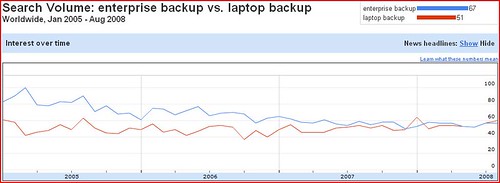I am liveblogging the Pune OpenCoffee Club saturday meetup, where we are discussing how to bootstrap your startup. We have invited three speakers who have experience with both bootstrapping a startup and VC funding: Anand Soman, Tarun Malaviya, and Shridhar Shukla. The following is a quick-n-dirty capture of some of the discussion that happened.
This is not intended to be a well thought out, well structured article – hopefully that will happen after a few days, when hopefully someone blogs about this event.
Update: The hope has come true. Here are two other blog posts on that event: A post by Santosh (or maybe Anjali) of Bookeazy, and one by Rishi from Thinking Space Technologies (ActiveCiti and EventAZoo)
Getting funded vs. bootstrapping your own startup:
Anand: Take funding when you want to do something that you cannot do without funds. This can be VC funds, or any other source of funds. But make sure that the goals of the financer are the same as your goals, otherwise you’ll get into trouble.
Tarun: Most of you will not get funded. Officially there are 45 million businesses in India. Unofficially, 85% of 350 million people are in the unorganized sector – so they are businesspeople.
I don’t want to be a mom-and-pop show in a corner. I want to be a big business. But remember Reliance is a bootstrapped company. Finance is a good thing at a certain time, not always. I’ve seen too many people fixated on getting funded. It is better to be fixated on running your business well – keeping customers happy.
Shridhar: You get funding only if you’ve proved that you have a viable business. Which means that you have to bootstrap until you reach that point. So you need to figure out how to do this in any case.
What are the disadvantages of VC funding?
Tarun: You have to build a bridge across a river. You need a million dollars. You get funds for only 50k. What do you do? Fold the business? That’s what a financial investor will suggest. An entrepreneur will do anything to keep the business running. Buy boats to get across. Run a boating service. Change tactics to make some progress.
VCs insist on big returns. Leave you with no choice.
Q: If someone wants to build a lifestyle business, then you don’t need VC funding. But if you want to build a product, there are many people across the world with the same idea. If they are funded and you are not, then you are at a major disadvantate.
Lifestyle business = this is a lifestyle choice for the founders. They are doing this just because they enjoy doing this, and they are making a little money. They are not interested in giving a huge exit to their investors.
Don’t worry about lifestyle or not. Focus on building value for customers. As long as you can do that, and create significant value, you will do fine, and you will attract investors. If the value created is not significant, you’ll find out soon enough, and you’ll change your strategy.
There is a major trade-off involved here. You must believe in yourself. But not to such an extent that you are blind to realities and are not listening to anybody at all. So you need to balance this – believing in yourself vs. listening to feedback. That is difficult.
So why take VC funding?
Tarun: Family businesses get ruined by all the informal/unprofessional structure. VC funding is a great way of getting a professional corporate structure that is necessary for success.
VCs have wisdom, if you select wisely. They open doors to contacts. They are advisors. Some of them can be given a stake without being given money. So that is important.
Every VC that I’ve talked to has helped me in some way. So even if you don’t take funding, take advice from them. Go through the process.
Anand: VCs are not the only source. Many other sources.
One good source is raising money from your first customer. Win-win situation. He invests because he can direct you to build a product he wants. This is good because the understands your product and understands the business requirements. And he is happier giving you a contract because he actually has control over you 9since he funded you).
Bootstrapping your product through services.
Shridhar: Do services. Charge high. Don’t worry about good quality work. Do boring work because it doesn’t take up too much of your time (so you have time to work on your product). Don’t have qualms about doing this. Even when you do your product, keep the structure in place for keeping the flow of money from services. Money from any source is good. Don’t give up on that.
Another possibility for bootstrapping is to moonlight. Work somewhere. Have a day job. Work at night. Don’t create pressure on your own savings or your friends savings. Many businesses got started that way. Many people are worried about being fast, and first to market. That is not so important. But be ethical. Don’t do your current employer in
Anand: 14 of the top 15 companies in the world were started by part-timers.
Tarun:
Q: Why do you want to do product?
A: Exponential returns. Build once, and sell many times. Product encapsulates a service. You can bootstrap this. Sell your product as a service to the first few customers. Or maybe, start by selling your expertise.
Shridhar:
Don’t tell your customer that you are going to build a product in the space that you are doing a project in. Be smart. Don’t sign a contract that gives away your IP.
![Reblog this post [with Zemanta]](http://img.zemanta.com/reblog_e.png?x-id=71afc5e5-48c8-4117-a209-57d79b5bb4d2)
![Reblog this post [with Zemanta]](http://img.zemanta.com/reblog_b.png?x-id=8385376a-113b-49f4-aaa9-bf708ed421d9)
![Reblog this post [with Zemanta]](http://img.zemanta.com/reblog_b.png?x-id=7c529a7d-0904-45bf-b37c-270f27c3d14d)

![Reblog this post [with Zemanta]](http://img.zemanta.com/reblog_b.png?x-id=c44dc62a-9da4-4e80-8c00-703d885fc18e)






![Reblog this post [with Zemanta]](http://img.zemanta.com/reblog_b.png?x-id=39141403-191c-4589-80ff-c375017cb02e)